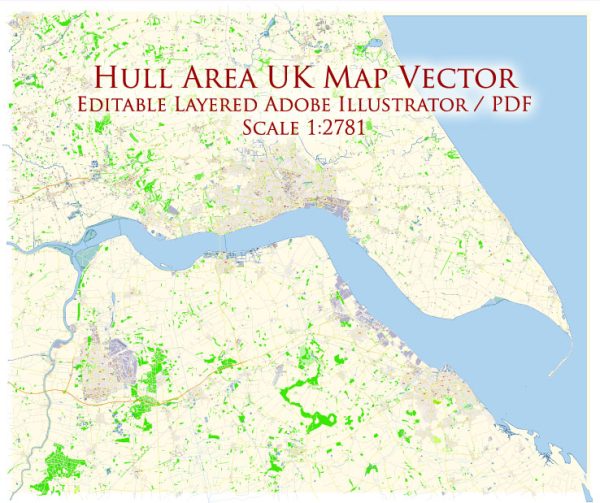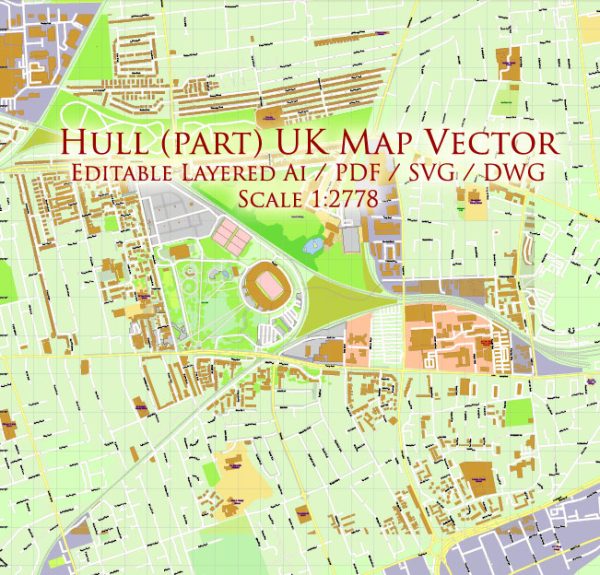Hull, officially known as Kingston upon Hull, is a city located in the East Riding of Yorkshire in the United Kingdom. It has a rich and fascinating history that spans over many centuries. Here is a brief description of the history of Hull:
- Medieval Origins: Hull’s history dates back to the late 12th century when it was founded by monks from Meaux Abbey as a small port town on the River Hull. The town’s location at the confluence of the River Hull and the Humber Estuary made it an ideal place for trade and commerce.
- Strategic Importance: Hull’s strategic location led to its development as a major trading port. It played a vital role in the export of wool, cloth, and other goods to Northern Europe, particularly during the medieval period.
- The English Civil War: Hull gained prominence during the English Civil War in the 17th century. It was a Parliamentarian stronghold and was famously besieged by Royalist forces in 1642. The successful defense of the city by Sir John Hotham is a significant historical event.
- Maritime and Trade Hub: By the 18th century, Hull had become one of the busiest ports in England, contributing significantly to the nation’s maritime and trade industries. The city’s growth was fueled by the whaling industry and the shipping of goods worldwide.
- Abolition of Slavery: Hull played a prominent role in the movement to abolish the transatlantic slave trade in the 18th century. The city was home to prominent abolitionists, and the Wilberforce House, now a museum, is the former residence of William Wilberforce, a key figure in the abolition movement.
- Industrial Revolution: The Industrial Revolution brought further prosperity to Hull as it expanded its industries, including shipbuilding and manufacturing. The city’s economy diversified, and it continued to thrive as a major port.
- World Wars: Hull played a significant role during both World War I and World War II. It was a major port for the British military and experienced heavy bombing during the Second World War.
- Post-War Reconstruction: After the war, Hull underwent significant reconstruction efforts. The city’s architecture was modernized, and it continued to be an important trading and fishing port.
- Cultural Heritage: Hull is known for its cultural contributions, including being the birthplace of poet Philip Larkin and the setting for many of his poems. The city has a rich artistic and cultural scene, with museums, galleries, and theaters.
- City of Culture: Hull gained international recognition in 2017 when it was named the UK City of Culture. This honor brought a series of events and cultural projects that celebrated the city’s heritage and contributed to its ongoing revitalization.
Hull’s history reflects its enduring importance as a maritime and trading hub, as well as its cultural and historical significance. Today, it is a vibrant city with a rich heritage, making it a fascinating destination for both tourists and history enthusiasts.



 Author: Kirill Shrayber, Ph.D. FRGS
Author: Kirill Shrayber, Ph.D. FRGS